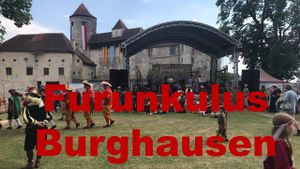Ontarians are gearing up for the 2025 Provincial Election, scheduled for Thursday, February 27. With polls open from 9 AM to 9 PM, Elections Ontario is working to clear up common questions to help voters navigate the day with confidence.
According to Greg Flood, Manager of Media and Outreach at Elections Ontario, many residents often ask basic questions about the voting process, particularly where and when to vote, and what identification they need to bring. "A voter information card is not required, just bring ID," he clarified. This announcement is particularly timely, as many voters are still waiting for their voter information cards, which were mailed between February 17 and February 22.
For Ontarians who haven't yet received their cards or are unsure of where to vote, there is no need to worry. Voters can still cast their ballot by simply bringing identification with their name and home address to their assigned location. Those who want to discover their voting precinct can do so using the electoral district search tool on the Elections Ontario website. This valuable resource allows voters to enter their postal code and find their designated polling station.
Elections Ontario's site also informs voters about acceptable forms of ID. Acceptable identification can range from driver's licenses, health cards, student cards, or any official documents indicating both name and address. This flexibility is helpful, especially since some voters may not have received their voter information cards due to delivery issues. Following recent snowstorms, delivery times have been affected, meaning some cards could be arriving late.
John Beebe, founder of the Democratic Engagement Exchange at Toronto Metropolitan University, voiced concerns about these delivery delays, noting the impact on voter confidence. "I think not having the voter information cards is a challenge. It's the one piece of information everybody gets to know, when, where, and ways to vote," he said. The snap election has led to additional challenges surrounding public awareness.
Encouragingly, community initiatives have also sprung up to help inform voters. Ottawa resident Brenda Wood, for example, has taken it upon herself to combat misinformation online about voter card requirements, noticing incorrect claims on social media. "People just weren't sure," Wood said. She sought to clarify the rules within her neighborhood's Facebook group to encourage more residents to participate in the upcoming election.
Voter engagement is particularly relevant this election, as the community effort echoes the importance of voter turnout. While early voting took place between February 20 and February 22, many individuals still prefer exercising their right to vote on the official day. They can take pride knowing their voices can help shape the future of Ontario.
Polls across Ontario will be situated at various community locations, such as schools, places of worship, and community centers, ensuring ease of access for voters. This is particularly pertinent as the province demonstrates its commitment to making voting as convenient as possible for every Ontarian.
This upcoming election marks Ontario's first winter election since 1920, stirring up unique logistical challenges. When asked about potential long lines outside polling stations under unfavorable winter weather, Elections Ontario did not anticipate any significant waiting times but acknowledged the weather's potential impact. Previous polling days, even when facing inclement weather, have yielded high voter turnout, illustrating Ontarians' commitment to exercising their democratic rights.
Results from the election are typically called relatively quickly after polling closes. Historically, major news networks have been able to call the election by 9:30 PM, allowing voters to remain informed about the electoral outcomes without having to wait long.
Ready to make your voice heard? Make sure you double-check your identification before heading to the polls on February 27, and take advantage of all the resources available through Elections Ontario. Opt for sharing this information within your networks to help clear confusion and promote participation. Every vote matters, and together, Ontarians can help shape the future of their province.



